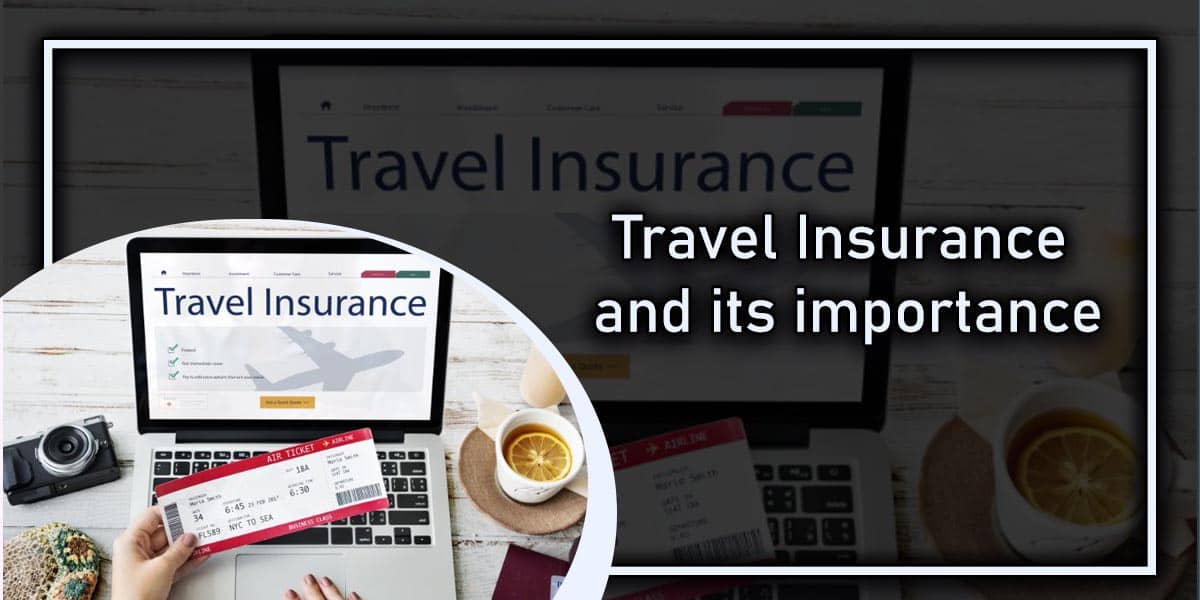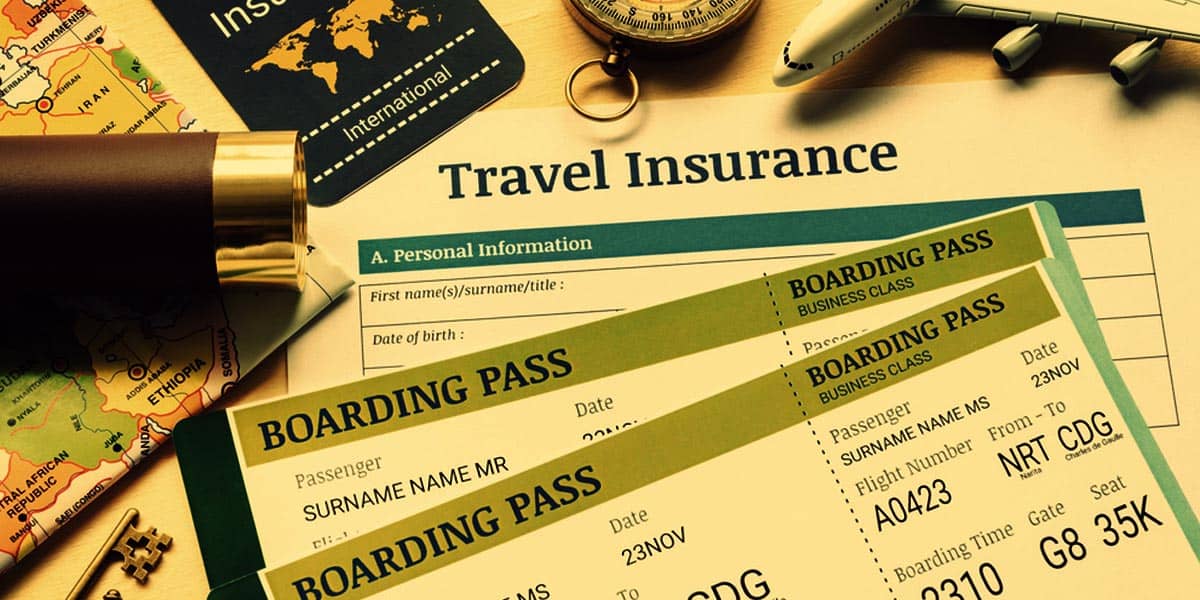
The importance of having travel insurance and what to look for in a policy
Traveling is an exciting journey that allows us to discover new places, meet other cultures, and make lifetime memories. However, unforeseen events such as medical emergencies, trip cancellations, lost belongings, or natural disasters can disrupt our plans and turn a dream vacation into a nightmare. That’s where travel insurance comes in. In this post, we will discuss the significance of travel insurance and highlight crucial elements to consider when selecting coverage.
index
ToggleThe Significance of Travel Insurance
Protection against Medical Emergencies
While we hope for the best during our travels, accidents and illnesses can happen anywhere. Medical expenses abroad can be exorbitant, and travel insurance ensures you receive necessary medical treatment without incurring astronomical costs. It includes coverage for hospitalization, emergency medical evacuation, repatriation, and access to 24/7 medical assistance.
Trip Cancellation and Interruption Coverage
Life is unpredictable, and circumstances may arise that force you to cancel or cut short your trip. Travel insurance reimburses non-refundable expenditures such as airfare, lodging, and pre-booked activities incurred due to illness, accident, or unexpected events such as natural disasters or elections.
Protection for Lost, Stolen, or Delayed Baggage
Losing or delaying your luggage might irritate you, especially when you’re away from home. Travel insurance covers lost or stolen baggage, allowing you to replace essential items. Additionally, it provides compensation for expenses incurred due to baggage delay, such as purchasing clothes or toiletries while waiting for your belongings.
Emergency Assistance and Travel Support
Access to emergency assistance services is reassuring when traveling to unfamiliar destinations. Travel insurance often includes 24/7 helplines that can provide support in various situations, such as locating local medical facilities, offering translation services, or assisting with legal matters.
What to Look for in a Travel Insurance Policy
Medical Coverage and Emergency Services
Ensure the policy provides comprehensive medical coverage, including emergency medical expenses, hospitalization, and evacuation. Look for coverage limits adequate for your destination and the activities you plan to engage in. Verify the availability of a 24/7 emergency assistance hotline to assist you during any medical crisis.
Trip Cancellation and Interruption Coverage
Check the policy for cancellation and interruption coverage and the conditions for filing a claim. Be aware of any limits or limitations that may apply. Consider the reimbursement limits and select a policy that adequately covers your non-refundable expenses.
Baggage and Personal Belongings Coverage
Please review the policy’s baggage coverage to ensure it provides adequate protection for lost, stolen, or damaged belongings. Note any specific exclusions or limitations, such as valuable items or electronics, and consider supplemental coverage if necessary. Verify the coverage for baggage delay and reimbursement for essential purchases during the wait.
Travel Destinations and Activities
Different travel insurance policies have varying coverage based on the destination and activities involved. If you plan to engage in adventure sports, extreme workouts, or travel to remote areas, confirm that your policy covers these activities. Certain high-risk destinations require specific coverage, so check if your policy includes them.
Policy Exclusions and Limitations
Carefully read the policy’s terms and conditions, paying attention to exclusions and limitations. Common exclusions include pre-existing medical conditions, acts of war, or participation in illegal activities. Ensure you understand what is and isn’t covered to make an informed choice regarding the insurance.
Additional Considerations for Travel Insurance
Pre-Existing Medical Conditions
It is critical to understand how your travel insurance coverage covers pre-existing medical issues if you have them. Some insurance includes coverage for pre-existing conditions, while others do not. Disclose all relevant medical information when purchasing the policy and inquire about additional premiums or requirements. Consider obtaining a policy with pre-existing condition coverage to ensure you receive the necessary medical care if required during your trip.
Travel Insurance Providers and Reviews
Choosing a reputable travel insurance provider is as important as selecting the right policy. Research different insurance companies and read customer reviews to gauge their reliability, customer service, and claim settlement efficiency. Look for providers with a strong track record and positive customer feedback, which indicates their commitment to providing reliable coverage and support.
Cost and Value Analysis
Comparing Coverage and Cost
While it’s tempting to choose the cheapest travel insurance policy available, it’s essential to consider the coverage provided about the cost. Evaluate the policy’s coverage limits, deductibles, and exclusions to determine if it meets your needs. Consider your destination, trip duration, planned activities, and the policy’s overall value. Balance the cost of the procedure with the coverage provided to find the best value for your travel insurance investment.
Bundled Insurance Options
Sometimes, it may be beneficial to opt for bundled insurance options that cover multiple aspects of your trip. For example, if you already have health or homeowner’s insurance, check if they offer travel insurance add-ons or discounts. Additionally, some credit cards provide travel insurance as a cardholder benefit. Exploring these bundled options can save you money while ensuring adequate coverage.
Understanding the Claims Process
Familiarize Yourself with the Claims Procedure
Understanding the claims process of your chosen travel insurance policy is essential. Familiarize yourself with the steps in filing a claim, including the required documentation, deadlines, and submission methods. Keep the contact information of your insurance provider readily accessible, including the emergency assistance hotline, so that you can reach out for guidance in case of an emergency or to initiate a claim.
Documentation and Evidence
Gathering and retaining all necessary documentation and evidence ensures a smooth and efficient claims process. It may include medical reports, police reports (in case of theft or loss), receipts for expenses incurred due to trip interruption or cancellation, and any other relevant documentation requested by the insurance provider. Keep copies of all documents and receipts in physical and electronic formats for easy access.
Timely Notification and Filing
Promptly notify your insurance provider about any incident that may lead to a claim, such as medical emergencies, trip cancellations, or lost baggage. Adhere to the specified timelines for notifying the provider and filing the claim. Delaying the notification or filing beyond the stated deadlines may result in the denial of your claim. Be proactive in initiating the claims process to ensure a timely resolution.
Communicate and Follow Up
Maintain open and regular communication with your insurance provider throughout the claims process. Keep records of all communications, including dates, times, and the names of the representatives you spoke with. Follow up on the progress of your claim and provide any additional information or documentation requested promptly. Clear communication and proactive follow-up can expedite the claims settlement process.
Seek Professional Assistance if Needed
If you encounter challenges or difficulties during the claims process, consider seeking assistance from professional resources such as insurance brokers or legal advisors specializing in travel insurance. They can provide guidance, advocate on your behalf, and protect your rights as a policyholder.
Conclusion
Travel insurance is an optional expense and a necessary investment to protect yourself and your travel plans. By considering the significance of travel insurance, examining policy coverage and exclusions, and assessing its value, you can make an informed decision that meets your specific needs. Remember to research reputable providers, compare policies, and choose one that offers comprehensive coverage at a reasonable cost. You can confidently set off on your travels with the correct travel insurance coverage, knowing you’re covered for any unforeseen events.
Recent Posts
Contact Us
+1 437 499 4559










